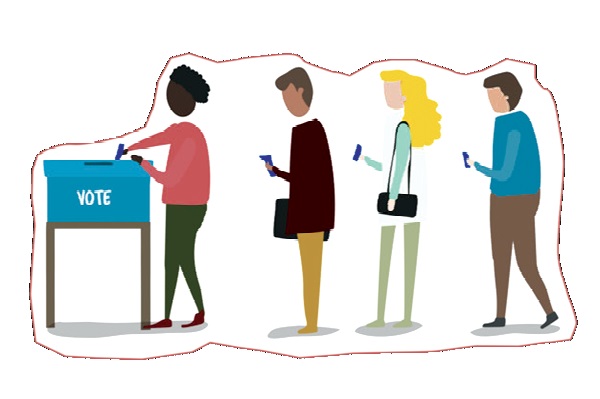
Our dissatisfaction with how democracy is working
In a recent exchange on social media with a friend, I said the following: “We have made our peace with democracy. We are yet to make our peace with how we want it to work and deliver the promise of democracy. That is our task now.” My friend responded by saying, “Interesting! But for how long will that peace with democracy hold sway when the democratic dividend isn’t trickling down?” I responded with, “From everything citizens have expressed in the Afrobarometer survey, I think that peace will hold sway for a very long time. But I also believe we should not take it for granted. Our support for democracy is generally unwavering. Our satisfaction with how it is working is a real sore spot.”
Support for democracy
I have previously argued that Ghana has made peace with democracy. My argument is based on the Afrobarometer survey’s findings that show in the most recent round (2022) eight out of ten citizens (77 per cent) saying, “democracy is preferable to any other form of government,” holding steady in comparison to the maiden round (1999, 77 per cent in support). To further demonstrate our preference for democratic governance, the survey findings show, over nine rounds, that there is a strong disapproval of authoritarian forms of government.
The disapproval of one-man rule has seen no significant change over time, remaining at a high of 86 per cent. The disapproval of one-party rule has strengthened by as much as 12 percentage points, going from 78 per cent in 1999 to 90 per cent in 2022. The disapproval of military rule also remains strong with seven out of ten (68 per cent) as of 2022, giving assurance that we do indeed prefer democracy.
In addition to our preference for democracy, Ghanaians continue to maintain positive dispositions towards democratic norms with overwhelming support for choosing leaders through elections, holding leaders accountable, and multipartyism. It is the combination of these factors that reassures me we have indeed made our peace with democracy.
Dissatisfaction with democracy
Looking at our strong preference for democracy and our very positive attitudes towards democratic norms, I could not help but notice the dissatisfaction expressed with the way democracy is working in survey year 2022. Between 1999 and 2008, the percentage of Ghanaians who said they were satisfied with the way democracy is working in the country saw a steady increase by a total of twenty-three percentage points (63 per cent to 83 per cent). Between 2008 and 2014, satisfaction with democracy dropped by twenty-two percentage points (83 per cent to 61 per cent).
The trend changed between 2014 and 2017 with Ghanaians showing greatly improved satisfaction with democracy (61 per cent to 80 per cent). Since then, satisfaction with democracy has been on a downward trend, declining by as much as twenty-nine percentage points (80 per cent to 51 per cent).
The year 2022 represents a historic low in satisfaction with the way democracy is working. This is worrying because it comes against the backdrop of strong support for democracy, a strong rejection of authoritarian regimes, and an overall positive attitude towards democratic norms.
Current level of dissatisfaction
In trying to understand why, I looked at a number of key factors – trust in institutions, perceptions of corruption in institutions, evaluation of the fight against corruption, evaluation of central government performance, and the overall governance environment. I situated these factors under three scenarios of our satisfaction with the way democracy is working – a) our year of highest satisfaction ever recorded (2008); b) our years of double-digit decline compared to an immediate previous round (2014 and 2019) and c) our year of lowest satisfaction ever recorded (2022).
In short, the data shows significant differences between the three scenarios described above. The more positive citizens’ evaluation of the factors listed above, the higher their level of satisfaction with the way democracy is working.
Consider these two examples. First, the higher the level of trust in elected institutions, the higher the level of satisfaction with the way democracy is working. In 2008, across elected institutions, out of possible nine points (9.0) the average score was 5.79 compared to 4.20 (2019); 3.57 (2014); and 2.89 (2022). Second, the more citizens feel the fight against corruption is going well, the higher their level of satisfaction with the way democracy is working. This is how citizens scored the fight against corruption- 56 per cent (2008); 25 per cent (2014); and 14 per cent (2022).
Work ahead
I repeat my argument that, yes, Ghanaians have made their peace with democracy. That peace with democracy, however, must contend with some important challenges. One of those challenges is our satisfaction with the way democracy is working and the factors shaping it. For how much we have embraced democracy, we must strive to address these factors as we endeavour to consolidate and deepen democratic governance in Ghana.
The writer is a fellow of CDD-Ghana
